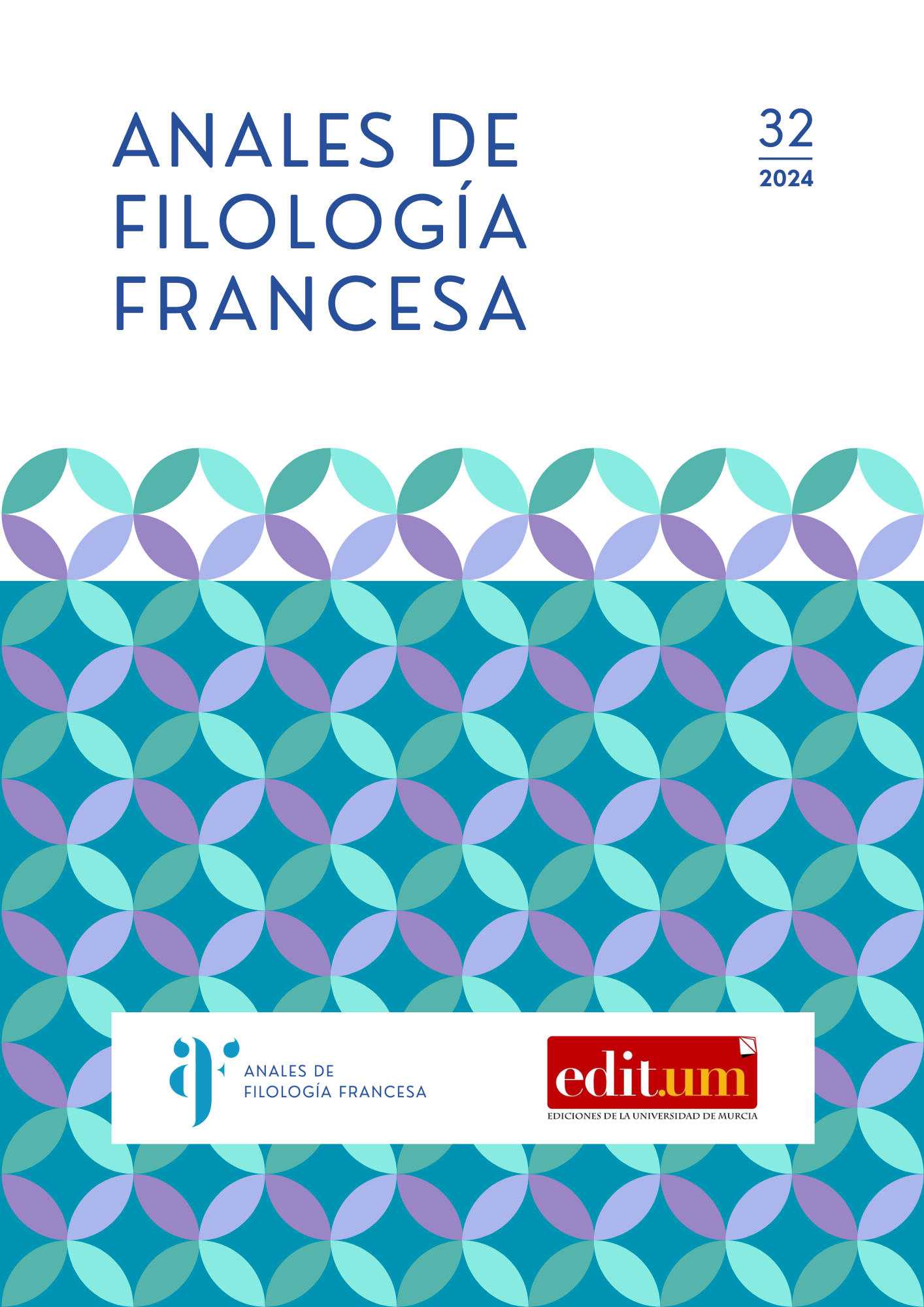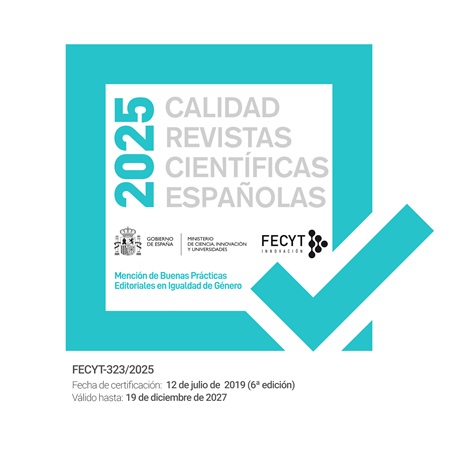En busca del tiempo perdido en la ciudad subyugada: Dora Bruder y el sortilegio de las correspondencias.
Resumen
In his novel, Dora Bruder (1997), the French novelist Patrick Modiano carries out a deep research comparable to those developed in memory studies. The author, in order to reconstruct Dora Bruder´s past, draws on archival materials, deals with survival witnesses interviews and recreates the former places in which Dora Bruder stayed. All this process started when Patrick Modiano was suddenly attracted by a piece of news from an old newspaper. From this perspective, the novel can be analyzed based on the legacy left by Walter Benjamin in the field of memory studies. However, when memory doesn´t leave tracks, Modiano pursues rhetorical strategies, inspired on surrealist literature, that can be described as “memory spells”.
Descargas
-
Resumen477
-
PDF159
Citas
ARAGON, Louis, 1953 [1926]. Le paysan de Paris. Paris, Gallimard.
BENJAMIN, Walter, 2013 [1936]. El surrealismo. Madrid, Casimiro Libros.
BENJAMIN, Walter, 2007 [1959]. Conceptos de la Filosofía de la Historia. Madrid, Terramar.
BRETON, André, 1964 [1928]. Nadja. París, Gallimard.
BRULLER, Jean, 2018 [1942] Le silence de la mer at autres récits. París, Le livre de Poche.
BURRIN, Philippe, 2004 [1995]. Francia bajo la ocupación nazi 1940-1944. Barcelona, Paidós.
CASTILLO, Fernando, 2015. París-Modiano. De la Ocupación a Mayo del 68. Madrid, Fórcola.
HECK, Maryline, 2018. “Modiano, Klarsfeld, and Dora: Revisiting a Misunderstanding”. Yale French Studies 133, 16-26.
HIRSCH, Marianne, 1997. Family Frames: Photography, Narrative and Postmemory. Boston, Harvard UP.
HORNE, Alistair, 2002. Seven Ages of Paris. New York, Vintage Books.
KLASFELD, Serge, 2001. La Shoah en France: Le Mémorial des enfants juifs déportés de France. París, Fayard.
MATE, Reyes, 2003. Memoria de Auschwitz. Actualidad moral y política. Madrid, Trotta.
MATE, Reyes, 2008. “Tierra y huesos. Reflexiones sobre la historia, la memoria y la memoria histórica”. La herencia del olvido. Madrid, Errata Naturae, 149-177.
MATE, Reyes. 2008. “Auschwitz y la fragilidad de Dios”, 2008. La herencia del olvido. Madrid, Errata Naturae, 111-133.
MATE, Reyes. 2009. Medianoche en la historia. Comentarios a las tesis de Walter Benjamin «Sobre el concepto de historia». Madrid, Trotta.
MATE, Reyes. 2013. La piedra desechada. Madrid, Trotta.
MODIANO, Patrick, 1997. Dora Bruder. Paris, Gallimard.
MODIANO, Patrick, 1975. La place de l´étoile. París, Gallimard.
MODIANO, Patrick, 2015. Discours à l´Académie suédoise. Paris, Gallimard.
PAZ, Octavio, 1993 [1987]. Los hijos del limo. Barcelona, Seix Barral.
RICOEUR, Paul, 2003 [2000]. La memoria, la historia, el olvido. La memoria, la historia, el olvido. Madrid, Trotta.
ROSE, Sven-Erik, 2008. “Remembering Dora Bruder: Patrick Modiano's Surrealist Encounter with the Postmemorial Archive”. Postmodern Culture, 18, 2, 73-86.
RUBIN Suleiman, Susan, 2007. “‘Oneself as Another’: Identification and Mourning in Patrick Modiano’s Dora Bruder.”. Studies in 20th and 21st Century Literature 31.2, 325-350.
SARLO, Beatriz, 2005. Tiempo pasado. Cultura de la memoria y giro subjetivo. Una discusión. Buenos Aires, Siglo Veintiuno Editores.
WAREHIME, Marja, 2000. ‟Paris and the Autobiography of a flâneur: Patrick Modiano and Annie Ernaux”. French Forum 25.1, 97-113.
Las obras que se publican en esta revista están sujetas a los siguientes términos:
1. El Servicio de Publicaciones de la Universidad de Murcia (la editorial) conserva los derechos patrimoniales (copyright) de las obras publicadas, y favorece y permite la reutilización de las mismas bajo la licencia de uso indicada en el punto 2.
2. Las obras se publican en la edición electrónica de la revista bajo una licencia Creative Commons Reconocimiento-NoComercial-SinObraDerivada 3.0 España (texto legal). Se pueden copiar, usar, difundir, transmitir y exponer públicamente, siempre que: i) se cite la autoría y la fuente original de su publicación (revista, editorial y URL de la obra); ii) no se usen para fines comerciales; iii) se mencione la existencia y especificaciones de esta licencia de uso.
3. Condiciones de auto-archivo. Se permite y se anima a los autores a difundir electrónicamente las versiones pre-print (versión antes de ser evaluada) y/o post-print (versión evaluada y aceptada para su publicación) de sus obras antes de su publicación, ya que favorece su circulación y difusión más temprana y con ello un posible aumento en su citación y alcance entre la comunidad académica. Color RoMEO: verde.











